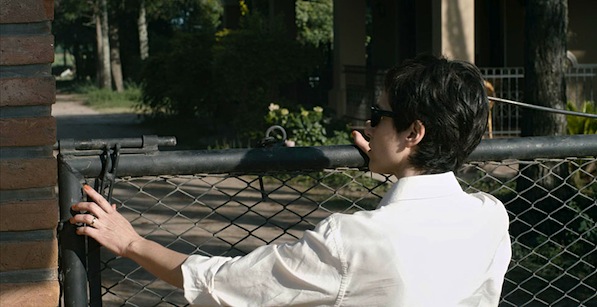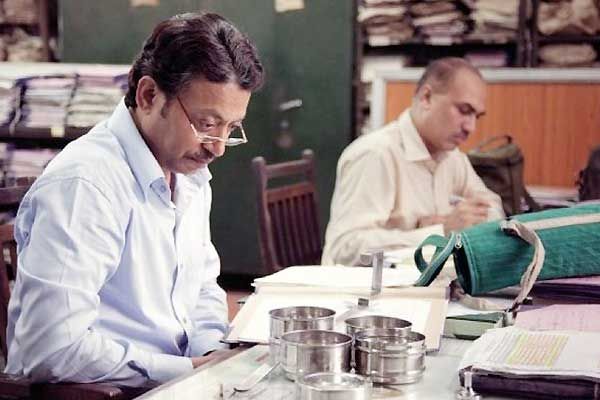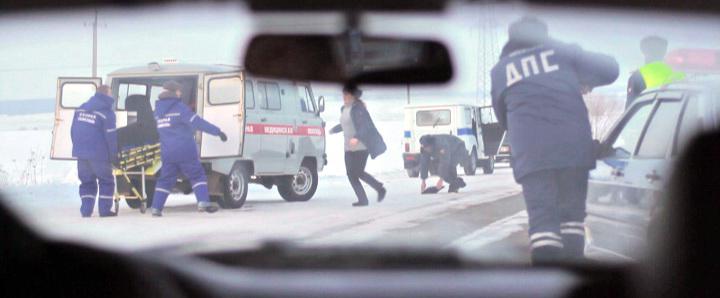Critics’ Week always starts a day after the Festival opens and ends three days before Cannes wraps up. Those eight days pass very quickly, especially because the Miramar, where most of the screenings take place, is further away from the city center and the Palais. Therefore every visit to the theater is a little journey; usually not a slow walk, but a nervous run through over-dressed and over-blinged crowds flooding the streets, in their skyscraper heels moving way too slowly for a rushing journalist on her way to the screening. The second Critics’ Week dispatch follows the first with four more films that competed for this year’s award.
I very much liked the unforced truthfulness, perceptiveness and social awareness of Los dueños (The Owners), an Argentinian production from first-time filmmakers Augustin Toscano and Ezequiel Radusky, artists with backgrounds in theater. It tells a story of two families: poor caretakers of a countryside estate in Tucumán, a northern province of Argentina, and the owners. During the owners’ absence the workers inhabit their house, a discovery that they make when coming there for an unexpected visit. But at the same time the workers also become silent witnesses of the other side’s dirty secrets… Los dueños is focused, non-judgmental, at times even funny in an absurd way—a useful touch, helping to unload otherwise heavyweight tone of the film. It’s subtle, yet powerful exploration of uneasy dynamic and power struggle between wealthy and poor reminded me somehow of Sebastian Silva’s widely acclaimed La Nana.
The Lunchbox by Ritesh Batra was probably the most lightweight—and sellable—of all this year’s competition screenings. The charming yet socially conscious story of impossible love, set in Mumbai, gained a very warm response from the public. The Lunchbox tells the story of a neglected housewife and a bitter widower who, despite all the barriers that divide them, find closeness… through food and long-forgotten epistolary art. The film’s distinctive quality is introduced by making the local public transportation and Indian community of dabbas the silent protagonist of this production. The 120-years old, unique system of personalized lunch delivery has been previously presented in Antje Christ’s documentary Dabbawala: The Lunch Box Miracle. With its likability potential, skillful storytelling and wisely used genre schemes, spiced up with an exotic, local flavor, The Lunchbox seems ready for smaller-scale worldwide distribution.
A touch of darkness was brought to the competition by Russian The Major, Yury Bykov’s realistic portrayal of moral dilemmas of a policeman, who, on the way to the hospital where his wife is about to give birth to their child, runs down a boy on a passage walk and kills him. He has to choose whether try to conceal the crime or face the consequences and go to prison. One questionable decision starts the unstoppable wheel of unexpected incidents rolling… Bykov has a great eye for naturalism. His portrayal of Russian landscapes, both urban and rural, is very realistic and rough and effectively enhances the dramatic potential of the film. The vast emptiness, general greyness and overwhelming melancholy of the background enable the words and actions to properly resonate. Great acting and the fearless depiction of both the physical and psychological brutality corrupting Russian institutions adds quality to this very interesting proposition.
The most forgettable of the second group was probably Nos héros sont mort ce soir (Our heroes died tonight) from France. Not that the author didn’t try; David Perrault film is very meticulously stylized, combining noir with gangster film, all shot in black and white. It plays with styles, costumes and light, showing a wide range of cinematic references. The unexpected storyline proves that Perrault does not want to be average. Nos héros focuses on the wrestling scene in the sixties in Paris, and the unexpected rivalry between two colleagues, wrestlers Simon “The Specter” and Victor “The Butcher,” both wearing stylish masks that must have later inspired many BDSM fans. However ambitious the project’s intentions were, the final product falls short, still resembling more an academic experiment than a cinema-ready, mature production.
Critics’ Week Award Winners:
Grand Prix Nespresso: Salvo by Fabio Grassadonia and Antonio Piazza.
France 4 Visionary Awards: Salvo by Fabio Grassadonia and Antonio Piazza
The Discovery prize for short film: Come And Play by Daria Belova
Canal+ short film award: Pleasure by Ninja Thyberg
Society of Authors, Directors and Composers Award for best screenplay: Le Demantlement by Sebastien Pilote.
For part one of this Cannes Critics’ Week report, visit this story on Keyframe. For Fandor films that have played previous Cannes Film Festivals, visit our Cannes Festival page. Film Society of Lincoln Center’s Daily Buzz features live podcasts from Cannes, presented by Fandor.






